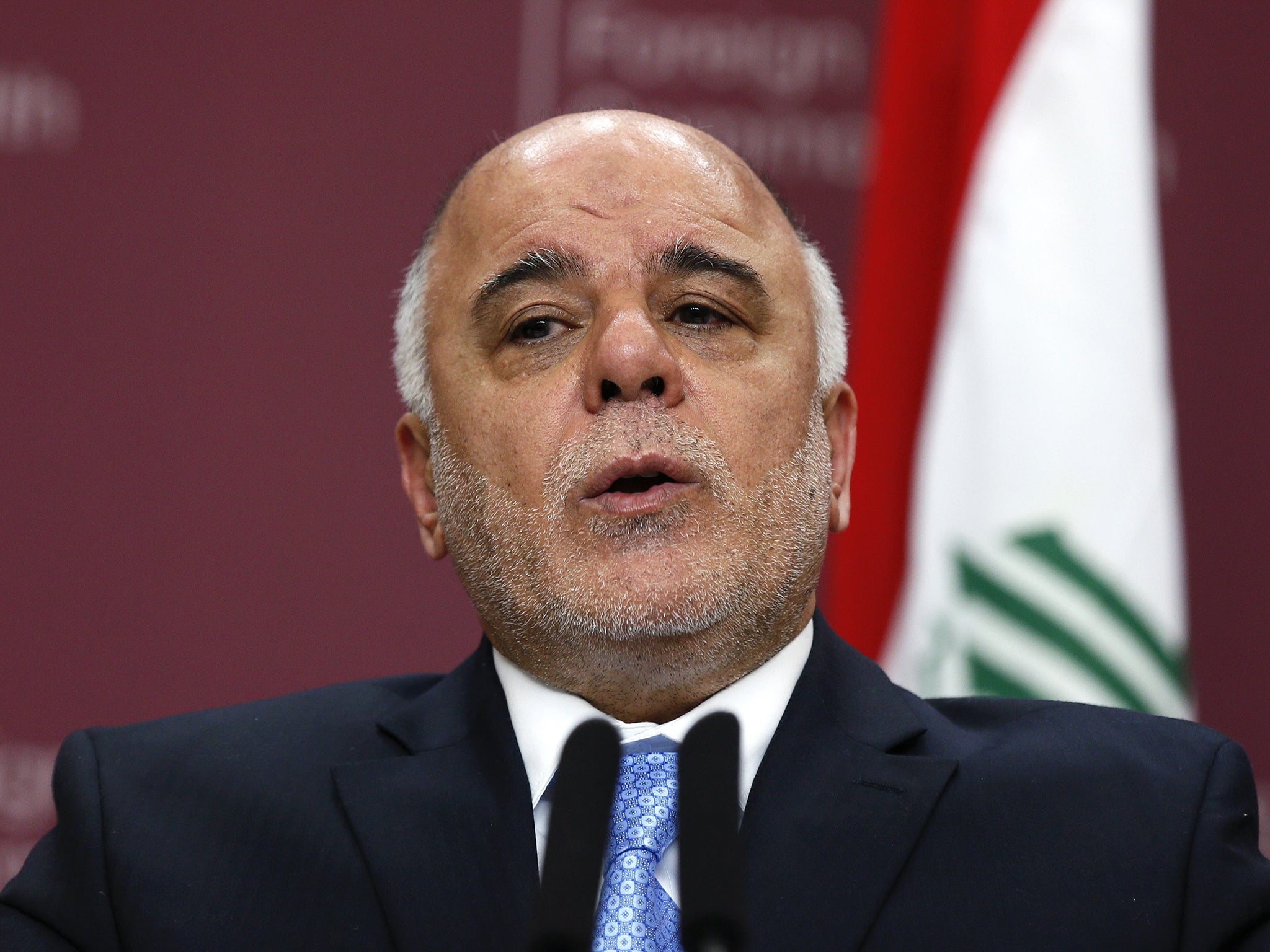Falling oil price could hurt fight against Isis, warns Iraqi PM
The oil price issue highlights the diverging and often conflicting aims of the countries officially ranged against Isis

The fall in Iraqi oil revenues risks damaging the campaign against Isis, the country’s Prime Minister warned today.
Haidar al-Abadi told an international summit in London that the tumbling price of crude was having “disastrous” consequences and threatened “reverses” for his forces battling to take back territory seized by the Islamists.
But the US Secretary of State, John Kerry, insisted that the war was being won. He told delegates that the 2,000 air strikes carried out by the American-led coalition had eliminated more than 50 per cent of the Isis leadership, killed thousands of its fighters and severely damaged its revenue stream by hitting oil and gas facilities it had seized.
But the oil price issue highlighted the diverging and often conflicting aims of the countries officially ranged against Isis. The primary reason for prices not rising is because Saudi Arabia, a key member of the coalition, has refused to cut oil production. One of the main reasons for the Sunni kingdom’s stance is that falling oil revenues hurt its arch-rival in the region, Iran – a Shia Muslim country which is also an ally of Iraq and its mostly Shia population.
Mr Abadi said: “Oil prices have dropped to about 40 per cent of their level last year. Iraq’s economy and budget relies 85 per cent on oil and this has been disastrous for us. We don’t want to see a reverse of our military... due to our fiscal and budget problems.”
He wants his international backers to defer payments for weapons, which they were said to have agreed to yesterday. Mr Abadi accused the West of stalling on its commitment to train Iraqi forces, adding that the supply of arms and ammunition was too slow.
Just before the conference, he complained: “We are in this almost on our own. There is a lot being said and spoken but very little on the ground”.
After the talks, he stated: “I have asked people for more support and I think my call didn’t go unnoticed.”
Despite half of the Isis leadership having supposedly been wiped out, the Foreign Secretary, Philip Hammond, said it would take up to two years to push the group out of Iraq, let alone tackle its heartland in Syria. The Baghdad government’s forces were in a “state of disarray” and inadequately trained or equipped for the necessary ground war, he said. But he added: “This campaign is not going to fail for the want of some guns or some bullets in the hands of the Iraqi security forces.”
David Cameron told Mr Abadi that Britain would continue to help tackle Isis but failed to make further commitments. UK military chiefs do not envisage additions to the Iraq mission before the general election in May.
Mr Cameron also stressed the dangers posed by Muslims travelling to take part in jihad in Iraq and Syria. He told Mr Abadi: “The threat from extremist terror you face in Iraq is also a threat we face here in the UK. We will do everything we can to help stop foreign fighters coming to your country and creating the mayhem we see today.”
Join our commenting forum
Join thought-provoking conversations, follow other Independent readers and see their replies
Comments
Bookmark popover
Removed from bookmarks